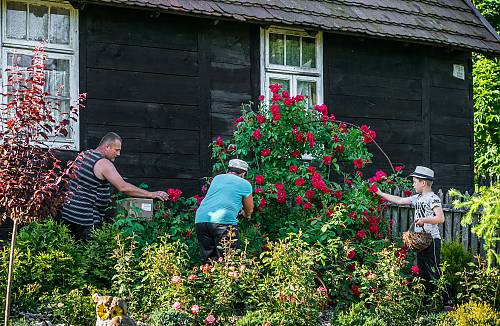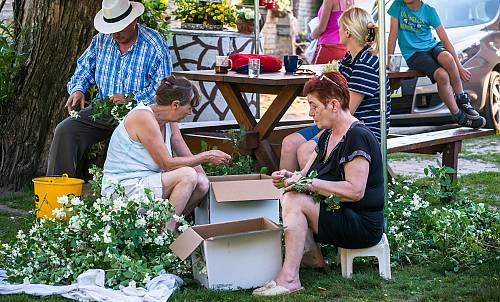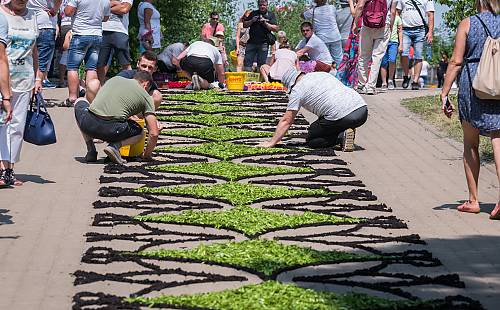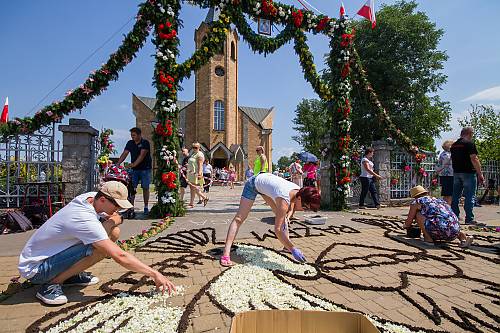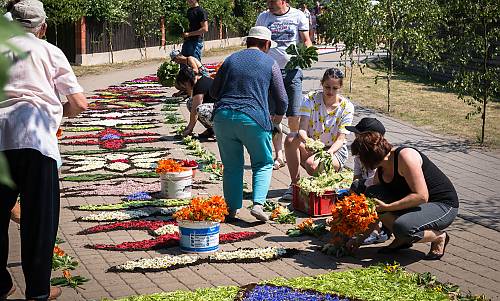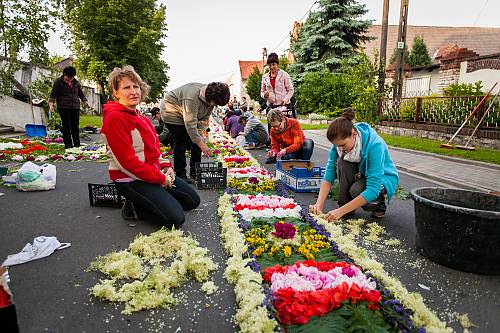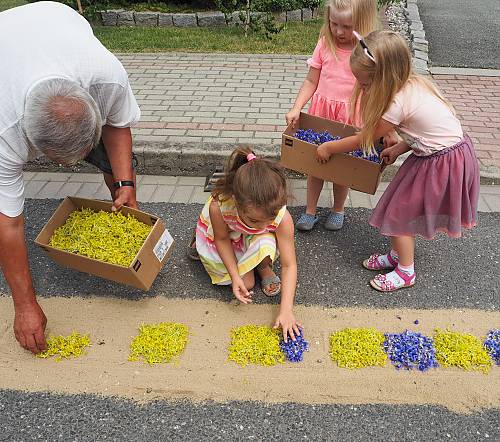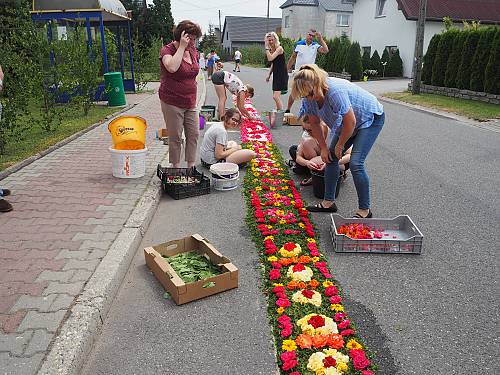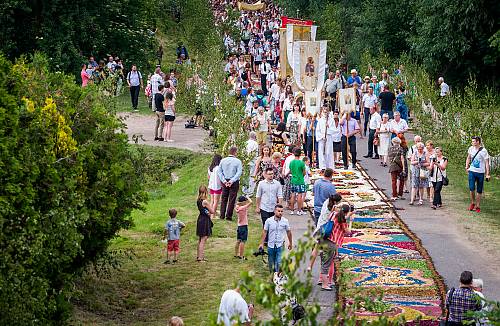Flower carpets tradition for Corpus Christi processions
Inscribed in 2021 (16.COM) on the Representative List of the Intangible Cultural Heritage of Humanity

The tradition of arranging flower carpets is inherently linked to the feast of Corpus Christi in Poland. For the feast, which typically involves a mass followed by a joyful procession from the church to the streets, families in several villages use flowers to arrange colourful and symbolic carpets on the route of the procession, usually on the road section in front of their homes. The flower carpets cover the road running from the church through the village and can reach almost two kilometres in length. The flowers used are picked from the surrounding fields or from family gardens. Soil, sand, tree bark and freshly cut grass or calamus leaves may also be used. Families start collecting flowers a few days before the celebration and begin the process of arranging the carpets early on the morning of Corpus Christi. The preparation lasts several hours, and the end result is an ephemeral and collective art piece meant to express religiosity, creativity and an appreciation of the beauty of nature. The tradition unites the entire community and has shaped local identity. The practice has been passed on for generations, especially within families. Pattern-making workshops are also regularly held in schools, with support from the parish and non-governmental organizations.
